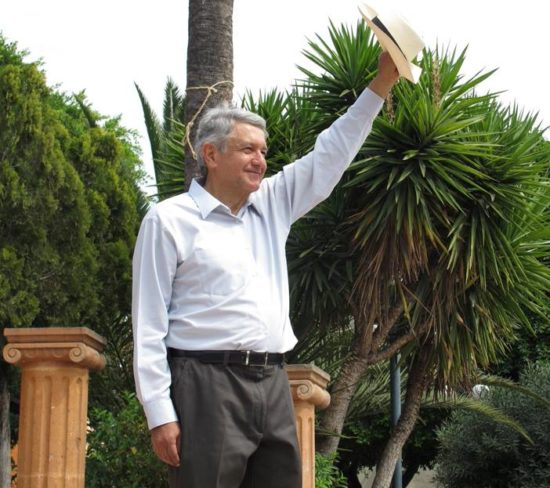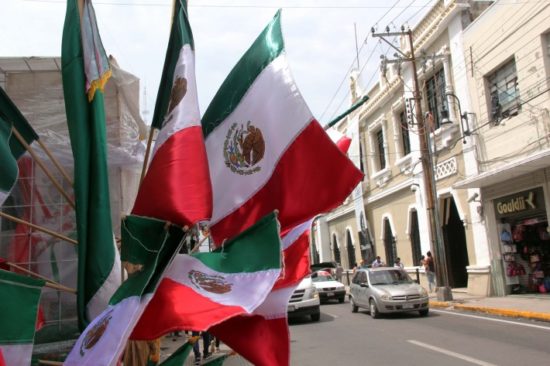Mexico’s presidential election Sunday July 1, is undoubtedly a historic poll. With a nation plagued by corruption and violence, voters appear to be heading to the ballot box with sweeping change in mind.
Polls consistently show the left-leaning Andres Manuel Lopez Obrador, widely known as AMLO, with a double-digit lead. Voters also will pick candidates to fill 128 seats in the country’s Senate and 500 seats in the Chamber of Deputies, the country’s higher and lower legislative bodies, respectively.
Outgoing President Enrique Peña Nieto, elected in 2012, sports a historically low approval rating, slipping as low as 17 percent last year, according to Pew Research Center polling. The Mexican constitution restricts candidates to one six-year term, with no chance of re-election. And Pena Nieto’s six years were marked by social and economic turmoil.
In 2012, Peña Nieto came to power in a country dealing with violence, much of it linked to the country’s notorious drug cartels, and a sluggish economy. Peña Nieto’s critics have said he has done little to address those ills, with some insisting he has made them worse.
In 2017, there were more than 25,000 homicides in Mexico, the highest number since the country began recording data on homicides in 1997. According to CNN, officials attribute the increase to a surge in drug-related crimes since 2014, when 15,520 people were slain.
At least 130 politicians, including 48 candidates, have been brutally murdered since the start of the election season last September, according to Etellekt, a Mexican political consulting agency. Earlier this month, three women political candidates were shot dead in just 24 hours.
Mexico’s July 1 presidential election is likely to lead to a historic result as the center-left candidate Andrés Manuel Lopez Obrador leads the race by at least 25 percentage points over his closest rival.
López Obrador, 64, a former Mexico City mayor, has been campaigning on a vow to bring down what he calls the “mafia of power” and to battle Mexico’s entrenched inequality. The promises go hand in hand: His government will recover billions lost to corruption and waste, he vows, and steer that money back into social programs.
Ricardo Anaya of the PAN (Partido Acción Nacional), in coalition with the leftist PRD (Partido de la Revolución Democrática) and the smaller Movimiento Ciudadano (Citizen Movement), heads the coalition called Por México al Frente (For Mexico to the Front), trails López Obrador, and yet many voters are skeptical of him because of his alleged corruption scandals, others think he is the only option to stop Obrador.
Anaya has been accused of money laundering and benefitting from a fraudulent real estate deal involving a network of shell companies. Anaya denies these claims.
Anaya says there’s been a pact, that Lopez Obrador is going to allow the corruption from the past to stand, and he would not do that. But there’s really no evidence whatsoever of a pact. And he has not presented any other evidence of such a pact. So there really doesn’t seem to be any substance to these accusations.
So now Mexicans, tired of the government’s wrongdoings will most likely elect AMLO. This basically means that, if López Obrador secures a win on Sunday, voters will expect a lot out of him and likely hold him accountable for his promises.
But it will take substantial time and work to mend Mexico’s deeply corrupt system. And it will be a huge challenge for López Obrador if he wins.
The results of Mexico’s election on Sunday July 1 could mean massive changes for the country. And the presidential winner will likely be under immense pressure to fix Mexico’s corrupt system and widespread violence.
TYT Newsroom





